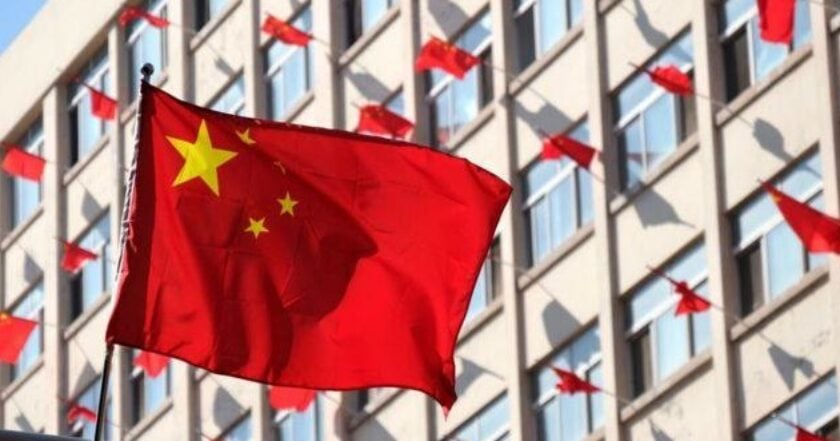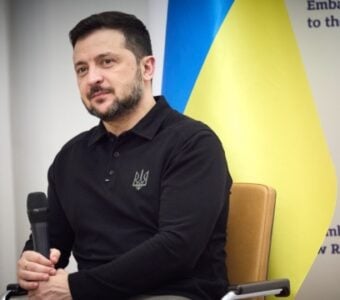China releases so-called "peace plan" for russia's war in Ukraine

Photo: open sources
The Chinese Ministry of Foreign Affairs has published a "peace plan" with its ideas for settling russia's war against Ukraine.
A 12-point position paper, "China's position on the political settlement of the crisis in Ukraine," released on the anniversary of russia's invasion, calls for peace talks between Ukraine and russia, urging parties to avoid nuclear escalation and end attacks on civilians.
The Guardian reports that the so-called "peace plan" maintains China's position that the west is fuelling the conflict has been "dismissed as anodyne by analysts."
Ukraine was not consulted about the plan's contents, cautiously welcomed by Ukrainian leadership, the publication says. However, it was criticized by US officials and some analysts who cited the growing ties between China and russia. On Thursday, China's top diplomat visited moscow and pledged a more in-depth partnership.
The published document's 12 points:
- Respect for the sovereignty of all countries
- Rejection of the "Cold War mentality"
- Cessation of hostilities
- Resumption of peace talks
- Solving the humanitarian crisis
- Protection of the civilian population and prisoners of war
- Ensuring the safety of nuclear power plants
- Reduction of strategic risks
- Promotion of grain export
- Termination of "unilateral sanctions"
- Maintaining the stability of industrial chains and supply chains
- Promotion of post-war reconstruction.
"It is important to support counter-steps by moscow and Kyiv in favor of the earliest possible resumption of direct dialogue, a gradual reduction in the tension of the situation, and a complete cessation of hostilities," the document reads.
According to China, "unilateral sanctions (not approved by the UN Security Council – ed.) and maximum pressure cannot solve the problem. They only create new problems."
China's paper also states that the "use of nuclear weapons" is unacceptable. "Nuclear proliferation must be prevented, and nuclear crisis avoided. China opposes the research, development, and use of chemical and biological weapons by any country under any circumstances," the document said.
The paper didn't address its recommendations to a particular side in the war, calling for all parties to "stay rational and exercise restraint" and not calling out russia for its invasion. Parties should "strictly abide by international humanitarian law, avoid attacking civilians or civilian facilities, protect women, children and other victims of the conflict," the plan says.
Ukraine's charge d'affaires to China, Zhanna Leshchynska, called the position paper "a good sign" and said she expects China to be more active in its support of her country. "We hope they also urge russia to stop the war and withdraw its troops," she said, adding that she did not at the moment see China as supporting Ukrainian efforts.
The Guardian reports that the Chinese government has positioned itself as a neutral side that can reduce tensions between russia and Ukraine. However, it has refused to condemn russia for its invasion of Ukraine, instead accusing the west of angering tensions. Some senior officials have even frequently expressed direct support for russia's goals.
Bonnie Glaser, a China expert at the US-based German Marshall Fund, told the Guardian the paper was a summary of its previously stated positions, "replete with contradictions." "Beijing claims to support Ukraine's sovereignty, but it has not criticized russia's annexations of Ukrainian territory," Glaser said.
Glaser also noted the last of the 12 points, which states China stood ready to help in post-conflict reconstruction, so it may mean China wants to "get its state-owned enterprises into Ukraine to make a profit and promote Chinese influence."
Drew Thompson, a scholar with the Lee Kuan Yew School of Public Policy and former US defense department official, said the statement lacked credibility. "Without… specifying the need to return territory that russia is attempting to annex, Beijing's statement is not a plan, but a statement of anodyne principals that China itself does not follow, such as opposition to economic coercion in cases of political differences," he said.



















































